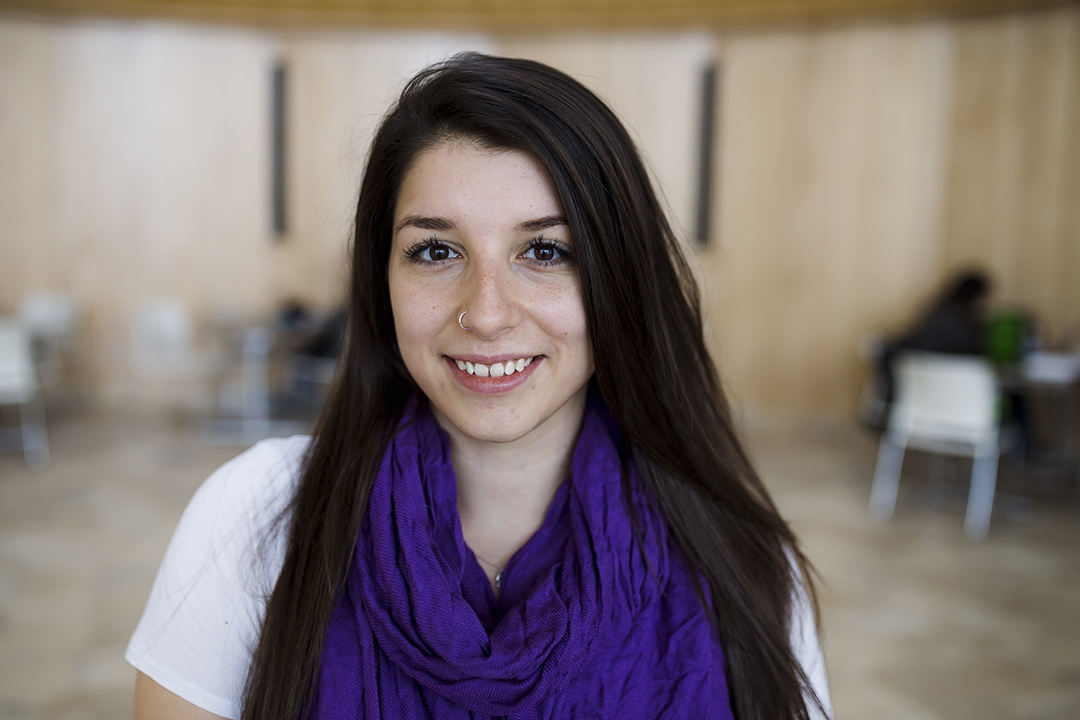
From wildlife to agriculture: USask student aims to make impact
Since taking the time to decide what she truly wants in life, Katie Harris has never looked back.
By John ShellingHarris grew up in The Pas, Manitoba, but has spent at least half of her life in Saskatoon. She received a dual diploma in Environmental Science from Lakeland College, majoring in both conservation and restoration ecology, and wildlife and fisheries conservation, before transferring to the University of Saskatchewan (USask). This spring, Harris will complete her Bachelor of Science in Agriculture, majoring in Environmental Science and plans to begin her master’s degree in wildlife science this fall.
Harris will receive an award for academic excellence at this year’s Indigenous Student Achievement Awards on Feb. 7. Indigenous students from across USask will be honoured at a ceremony to recognize their academic excellence, leadership, research endeavours or community engagement.
The award ceremony is part of Indigenous Achievement Week (IAW), which celebrates the successes and contributions of Métis, First Nations and Inuit students, staff and faculty. The festivities include a public art project, speakers and celebrations in various locations across campus.
We asked Harris a few questions about her time at USask and what motivates her.
Why did you choose Environmental Science?
I have always felt a deep connection to the environment, I believe it is our most precious resource and so, wish to dedicate my career to its preservation for the benefit of humans and wildlife alike.
You received a dual diploma in Environmental Science from Lakeland College, majoring in both Conservation and Restoration Ecology and Wildlife and Fisheries Conservation, you will be completing your Bachelor of Science in Agriculture and Environmental Science and you are planning to pursue a Master’s degree in Wildlife Science. Can you talk about your connection to the environment and where it began?
I cannot remember a time in my life where I did not feel a deep connection to the environment. Since I was young, respect for the environment and everything in it was instilled in me through my parents, who are both outdoor enthusiasts, and the ten years I spent as an active member of Girl Guides of Canada. Throughout my life I have spent as much time as possible exploring nature, going fishing, camping, hiking, boating and other activities that further fueled my respect and love for nature.
What advice would you give to a first-year Indigenous student?
The advice I would give to a first year indigenous student, and any first year student, is to decide what you want out of your education, and then not let anything stand in your way of attaining your ambitions. There is always a way to reach your goals, as impossible as they may seem, as long as you do not stop reaching for them.
What plans do you have for the future?
I plan on starting graduate school in the fall to work towards achieving my master’s degree. Following that, I am yet undecided as to whether I will pursue my PhD or enter the workforce. Career-wise I would like to work in the field of environmental research, focusing on wildlife distribution and population patterns in a fragmented agricultural landscape, and to help agriculture producers manage their land for biodiversity.
Has there been someone in your life who has inspired you to get to where you are today?
To be honest, the person who has inspired me to get to the point I am at today is myself. I took time off after high school to decide what I wanted to do with my life, and I haven’t looked back since. Everything I have accomplished throughout the past four and a half years is due to the pressure I put on myself to achieve my goal of making an impact, no matter how big or small, on enhancing the protection and preservation of our environment.
This year’s theme of the Indigenous Achievement Week is Powerful Voices. If there is one thing you can use your voice for in this moment what would it be for?
If I could use my voice for one thing in this moment in time it would be to call for individual self-reflection. The choices that we as students and members of society make directly impact the sustainability of our earth, and I would like everyone to look at the choices they make on a daily basis and reflect on how those choices are impacting the world around them.

